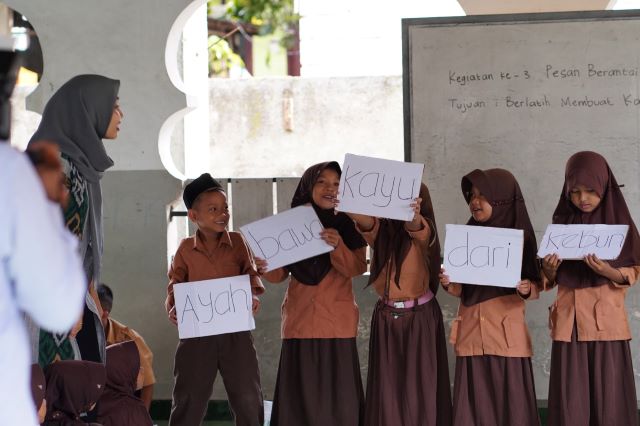Transformation and Innovation in Indonesian education – Transformation and innovation in Indonesian education has been a topic of great concern in recent years. Governments, educational institutions and society as a whole have realized the need to change the existing traditional education system and adopt new approaches that encourage the development of students’ potential and create a more advanced and competitive society. In this paper, we will explore various aspects of transformation and innovation in Indonesian education, and their associated benefits and challenges.
One important aspect of educational transformation is integrating information and communication technology in the learning process. In this rapidly developing digital era, technology has become an inseparable part of our daily lives. Therefore, using technology as a tool to improve the quality of education is an unavoidable step. By leveraging state-of-the-art software and hardware, education is accessible to everyone across the country, even in remote areas. For example, online lessons and digital learning platforms can enable students to gain access to up-to-date, high-quality educational materials and develop digital skills that are crucial in the modern world of work.
In addition, transformation and innovation in Indonesian education
also involve changes in teaching methods. Educators across the country have shifted from a teacher-centered approach to a student-centred approach. This means that students are more involved in the learning process and are given the opportunity to develop their creativity, critical thinking skills and social skills. The teacher no longer only acts as a teacher, but also as a facilitator who encourages students to learn independently and take responsibility for their own learning process. This approach also includes project-based learning, student-to-student collaboration, and continuous formative assessment, all of which aim to help students develop a deeper understanding of subject matter and relate it to the real world.
In addition to teaching methods
the curriculum has also undergone significant transformation. The current curriculum must be able to include knowledge and skills that are relevant to the current and future needs of society and the world of work. Hence, there is a greater emphasis on developing 21st century skills, such as problem solving, creativity, collaboration, communication, and critical thinking. The curriculum also seeks to integrate cultural, ethical, and sustainability values, so that students not only become academically smart, but also have a strong awareness of the environment and the surrounding community.
However, it cannot be denied that transformation and innovation in education also faces several challenges. One of the main challenges is the digital divide between urban and rural areas. Although technology has provided greater access to education, there are still many areas in Indonesia that do not have adequate technological infrastructure or have limited access. This could hinder efforts to provide equitable and high-quality education throughout the country. Therefore, greater efforts are needed to address this gap, such as building better technology infrastructure and involving all parties in ensuring equal access to education.
In addition, resistance to change is also a challenge that must be faced
Many people still retain the traditional approach to education, and it is not easy for them to accept and implement the proposed changes. Therefore, there needs to be ongoing efforts to increase awareness and understanding of the importance of transformation and innovation in education, as well as the long-term benefits that can be obtained.
In conclusion, transformation and innovation in Indonesian education has great potential to improve the quality of education and create a more advanced and competitive society. Through the use of technology, changes in teaching methods, and development of relevant curricula, education can become more inclusive, interactive and in line with the demands of the times. However, challenges such as the digital divide and resistance to change must be overcome with the cooperation of all parties. Only with joint efforts can we achieve a holistic and sustainable educational transformation, thereby providing broad benefits for future generations and the future of Indonesia.
